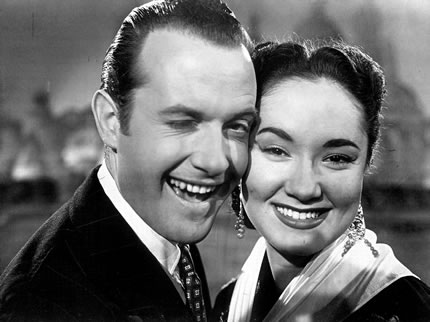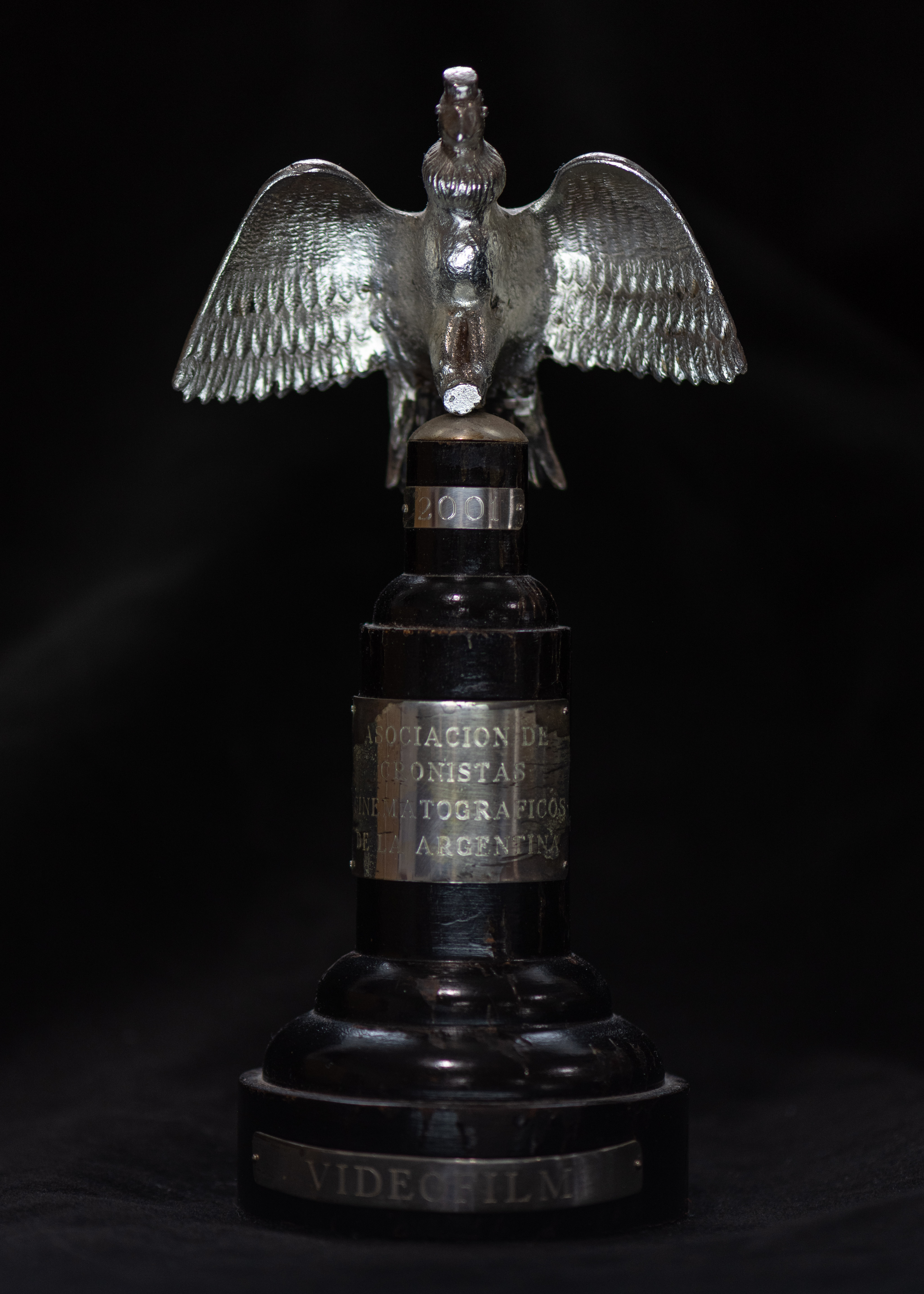|
Ricardo Passano
Ricardo Passano (April 19, 1922 in Caballito, Buenos Aires – December 13, 2012 in Ituzaingo) was an Argentine actor. He starred in the acclaimed Silver Condor-winning 1943 film '' Juvenilia''. Other notable roles include '' Cuando en el cielo pasen lista'' (1945) and '' El mal amor'' (1955). Selected filmography * '' The Three Rats'' (1946) * ''Rhythm, Salt and Pepper Rhythm, Salt and Pepper (Spanish:''Ritmo, sal y pimienta'') is a List of Argentine films of 1951, 1951 Argentina, Argentine musical comedy film directed by Carlos Torres Ríos and starring Lolita Torres, Ricardo Passano and María Esther Gamas. ...'' (1951) References External links * Argentine male film actors 1922 births 2012 deaths Male actors from Buenos Aires 20th-century Argentine male actors {{Argentina-actor-stub ... [...More Info...] [...Related Items...] OR: [Wikipedia] [Google] [Baidu] |
Caballito
Caballito (; Spanish for "little horse") is a '' barrio'' (neighborhood) of the Argentine capital, Buenos Aires. It is the only ''barrio'' in the administrative division ''Comuna'' 6. It is located in the geographical centre of the city, limited by the following streets and avenues: Rio de Janeiro, Av. Rivadavia, Av. La Plata, Av. Directorio, Curapaligüe, Av. Donato Álvarez, Av. Juan B. Justo, Av. San Martín, and Av. Ángel Gallardo. The name is said to come from the horse-shaped (Spanish ''caballo'') weather vane from a local ''pulpería'' (gauchos' bar); ''Caballito'' meaning "Little horse". Places of interest In Caballito there are numerous points of interest; the "English District" with British style "Fin de Siècle" architecture, the Ferro Carril Oeste football Club (or "Verdolaga"), the "Historical Tramway museum of Buenos Aires", the old "Mercado del Progreso" (Market of Progress) a neighborhood favorite since 1890, the Italian Club and the Portuguese Club. Among ... [...More Info...] [...Related Items...] OR: [Wikipedia] [Google] [Baidu] |
Buenos Aires
Buenos Aires ( or ; ), officially the Autonomous City of Buenos Aires ( es, link=no, Ciudad Autónoma de Buenos Aires), is the capital and primate city of Argentina. The city is located on the western shore of the Río de la Plata, on South America's southeastern coast. "Buenos Aires" can be translated as "fair winds" or "good airs", but the former was the meaning intended by the founders in the 16th century, by the use of the original name "Real de Nuestra Señora Santa María del Buen Ayre", named after the Madonna of Bonaria in Sardinia, Italy. Buenos Aires is classified as an alpha global city, according to the Globalization and World Cities Research Network (GaWC) 2020 ranking. The city of Buenos Aires is neither part of Buenos Aires Province nor the Province's capital; rather, it is an autonomous district. In 1880, after decades of political infighting, Buenos Aires was federalized and removed from Buenos Aires Province. The city limits were enlarged to include t ... [...More Info...] [...Related Items...] OR: [Wikipedia] [Google] [Baidu] |
Ituzaingó, Buenos Aires
Ituzaingó () is the capital of the Ituzaingó Partido in the Greater Buenos Aires metropolitan area, Argentina, west of Buenos Aires. Overview Ituzaingó has been the capital of the Ituzaingó Partido or municipality of Buenos Aires Province since 1995, when the partido was created. Buildings of more than three stories were until recently prohibited and most houses are only one story high The shopping area near the train station connecting the city with Buenos Aires City (Downtown) is located surrounding a square, opposite the church, where concerts, cultural events and fares are held on weekends and holidays. Ituzaingó is away from the city of Buenos Aires. It has French-style chalets, quiet streets and leafy trees, which coexist in all neighborhoods of the city. According to the last national census of 2010, the population was of 168,419 people. It stands out the neighborhood of Parque Leloir, one of the largest protected ecological zones of the Province, and also known ... [...More Info...] [...Related Items...] OR: [Wikipedia] [Google] [Baidu] |
Argentine Film Critics Association Awards
The Argentine Film Critics Association ( es, Asociación de Cronistas Cinematográficos de la Argentina) is an organization of Argentine-based journalists and correspondents. The association presents the ''Silver Condor Awards'' (''Premios Cóndor de Plata'') honoring achievements in Argentine cinema. The awards are considered Argentina's equivalent of the Academy Awards. The association was organized on July 10, 1942, and the annual awards have been given since 1943, with breaks in between.IMDb film data base, awards section. The Argentine Film Critics Association is a member of the International Federation of Film Critics, also known as . Silver Con ...
|
Juvenilia (film)
''Juvenilia'' is a 1943 Argentine comedy-drama film directed by Augusto César Vatteone. One of the most critically acclaimed Argentine films of 1943, at the 1944 Argentine Film Critics Association Awards the film won the Silver Condor Award for Best Film, Best Director for Vatteone, Best Supporting Actor for Eloy Álvarez and Best Adapted Screenplay for writers Pedro E. Pico, Manuel Agromayor and Alfredo de la Guardia. Cast * Elisa Christian Galvé * José Olarra *Ernesto Vilches * Eloy Álvarez *Ricardo Passano *Hugo Pimentel *Mario Medrano * Rafael Frontaura *Gregorio Verdi *Domingo Márquez Domingo Márquez was an Argentine actor. He starred in films like '' The Best Father in the World '' (1941), '' Los martes, orquídeas'' (1941), ''Filomena Marturano'' (1950), and '' The Fire Girl'' (1952). He had a minor role in the acclaimed Sil ... References External links * 1943 films 1940s Spanish-language films Argentine black-and-white films Films directed by A ... [...More Info...] [...Related Items...] OR: [Wikipedia] [Google] [Baidu] |
Cinenacional
Cinenacional.com is a web portal and web-based database about Argentine cinema. It is the most comprehensive site for information about the Argentine film industry, with a vast array of information on films, television programs, directors, actors, cinematographers, film editors, production designers, and film viewing figures. As of July 2022 it has 53,567 articles on films in its database, 11,074 technical data sheets, and 25,478 photos. The site receives an average of 18,000 views a day. History The management team was organized in August 2000, and went on-line on June 9, 2001. The founding directors were Diego Papic and Pablo Wittner. Jorge C. Bernárdez, coauthor of ''#ElFinDelPeriodismo'' (2017), was among the critics. The site claims that the website was labelled of ''cultural interest'' by the Buenos Aires government resolution # 136 in 2006 and that since 2007 it has been supported by the Instituto Nacional de Cine y Artes Audiovisuales (INCAA), the official governmental ... [...More Info...] [...Related Items...] OR: [Wikipedia] [Google] [Baidu] |
Cuando En El Cielo Pasen Lista
''Cuando en el cielo pasen lista'' is a 1945 Argentine film directed by Carlos F. Borcosque. Cast * Narciso Ibáñez Menta * Ilde Pirovano * Aída Alberti * Luis Zaballa * Juan Carlos Barbieri * Ricardo Passano * José Olarra * Raimundo Pastore * Homero Cárpena * Froilán Varela * Percival Murray * Zulma de Diego * Antonio Sember * Juan Carlos Altavista Juan Carlos Altavista (January 4, 1929 in Buenos Aires – July 20, 1989) was an Argentine actor and comedian. Life Juan Carlos Altavista began his career at Teatro Infantil Labarden,Labarden children's theatre in Buenos Aires. Afterwards he l ... * Saúl Jarlip * Carlos Alberto Campos * Carlos Belluci * Julio Cobo * Margarita Burke * Ricardo Talesnik * Enrique Chaico * Carmen Giménez References External links * 1945 films 1940s Spanish-language films Argentine black-and-white films Films directed by Carlos F. Borcosque Argentine drama films 1945 drama films 1940s Argentine films {{194 ... [...More Info...] [...Related Items...] OR: [Wikipedia] [Google] [Baidu] |
The Three Rats (film)
''The Three Rats'' (Spanish:''Las Tres Ratas'') is a 1946 Argentine drama film directed by Carlos Schlieper and starring Mecha Ortiz, Amelia Bence and María Duval.Plazaola p.189 It is an adaptation of Alfredo Pareja Diezcanseco's 1944 novel of the same title. Cast * Mecha Ortiz as Mercedes de la Fuente * Amelia Bence as Eugenia de la Fuente * María Duval as Ana Luisa de la Fuente * Miguel Faust Rocha as Alfredo Millán * Santiago Gómez Cou as Ernesto Carbó * Ricardo Passano as Oscar Aranda * Felisa Mary as Aurora de la Fuente * Floren Delbene as Carlos * Amalia Sánchez Ariño as Consuelo * Juan José Piñeyro as Zabala * Lalo Bouhier as Inspector de policía * Aurelia Ferrer as Bernarda * Cirilo Etulain as Horacio Saldaña * Gonzalo Palomero Gonzalo may refer to: * Gonzalo (name) * Gonzalo, Dominican Republic, a small town * Isla Gonzalo, a subantarctic island operated by the Chilean Navy * Hurricane Gonzalo, 2014 See also * Gonzalez ... [...More Info...] [...Related Items...] OR: [Wikipedia] [Google] [Baidu] |
Rhythm, Salt And Pepper
Rhythm, Salt and Pepper (Spanish:''Ritmo, sal y pimienta'') is a List of Argentine films of 1951, 1951 Argentina, Argentine musical comedy film directed by Carlos Torres Ríos and starring Lolita Torres, Ricardo Passano and María Esther Gamas. Cast * Lolita Torres — Lolita González Torres * Ricardo Passano — Gerardo * María Esther Gamas — Renée * Mario Baroffio — mr. Alejandro González * Gogó Andreu — Guillermo * Tito Climent — Pablo * María Luisa Santés — aunt Aurora * Marcos Zucker — Ernesto * Alfredo Barbieri — José * Susana Vargas * Olga Gatti * Luis Laneri * Pola Neuman External links * 1951 films 1951 musical comedy films 1950s Spanish-language films Argentine black-and-white films Argentine musical comedy films Films directed by Carlos Torres Ríos 1950s Argentine films {{musical-comedy-film-stub ... [...More Info...] [...Related Items...] OR: [Wikipedia] [Google] [Baidu] |
Argentine Male Film Actors
Argentines (mistakenly translated Argentineans in the past; in Spanish (masculine) or (feminine)) are people identified with the country of Argentina. This connection may be residential, legal, historical or cultural. For most Argentines, several (or all) of these connections exist and are collectively the source of their being ''Argentine''. Argentina is a multiethnic and multilingual society, home to people of various ethnic, religious, and national origins, with the majority of the population made up of Old World immigrants and their descendants. As a result, Argentines do not equate their nationality with ethnicity, but with citizenship and allegiance to Argentina. Aside from the indigenous population, nearly all Argentines or their ancestors immigrated within the past five centuries. Among countries in the world that have received the most immigrants in modern history, Argentina, with 6.6 million, ranks second to the United States (27 million), and ahead of other immig ... [...More Info...] [...Related Items...] OR: [Wikipedia] [Google] [Baidu] |



